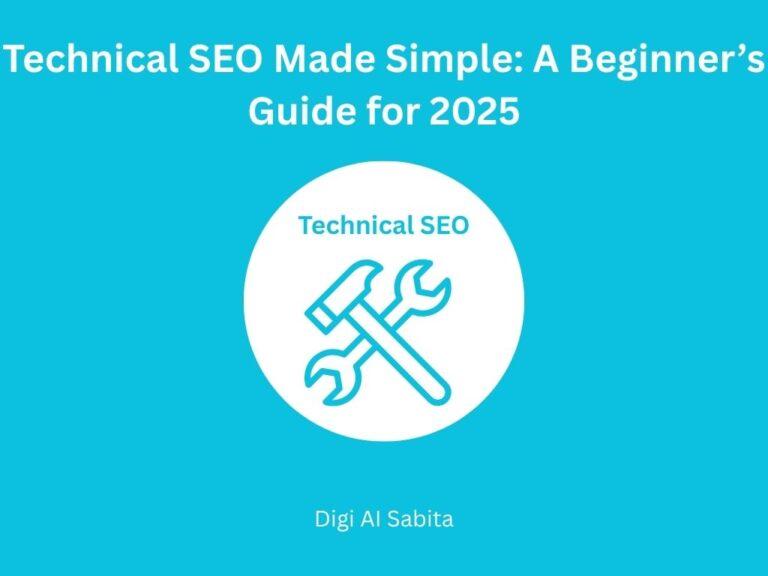The Best Keyword Research Tools for Low-Competition SEO: Free & Easy
Introduction: Best Keyword Research Tools
Having the exact keywords can make your SEO plan in this modern era. Everyone cannot afford premium tools. There are free and easy-to-use keyword research tools on the market that you can use in the free version. It is not necessary to purchase first to drive organic traffic. You can start with free tools. If you’re a writer, blogger, freelancer, or business owner, this article will take you through the top free keyword research tools for low-competition SEO. They are easy to use, effective, and, above all, free of cost.
What is a keyword research tool?
A keyword research tool refers to the software application that helps to find or analyze keywords that people use to search on the search engine, which is Google. It is important for SEO, content marketing, advertising, etc.
Importance of Focus on Low-Competition Keywords
It is necessary to focus on low-competition keywords because they are easier to rank for, especially if your website is new or lacks domain authority. They help you for the following reasons:
- Drives targeted traffic faster.
- Enhances visibility in niche areas.
- Boosts SEO results without a huge backlink strategy.
- Utilizes time and resources.
And when you put together keywords with high-quality content, these keywords can bring long-term benefits.
Best Free Keyword Research Tools for Low-Competition SEO

1. Google Keyword Planner
This tool is perfect to begin your keyword journey. Though most tools are designed for advertisement, they provide useful insights, such as competition level and search volume.
How to use low-competition keywords:
- Set the competition filter to “Low”
- Select long-tail keywords
- Research related keyword suggestions
Bonus Tip: Use Keyword Planner with Google Trends to identify trending opportunities.
2. Ubersuggest (Free Version)
Ubersuggest is a free tool that provides a simple structure and desired keyword difficulty (SEO difficulty), search volume, and keyword suggestions. It is developed by Neil Patel.
Main features are:
- Keyword suggestions
- Traffic analyzer
- Content suggestions
Pro Tip: Filter keyword difficulty less than 30 for improved ranking opportunities.
3. AnswerThePublic
This keyword visual tool shows questions people have surrounding a topic. It’s great for searching for content ideas and overlooked low-competition phrases.
It is used for:
- Discovering “what,” “how,” “why,” and “when” questions
- Finding long-tail, intent-driven keywords
- Generating FAQ sections for SEO-rich content
Pro Tip: Use with Google Search Console data for ultimate content alignment.
4. Keyword Surfer (Chrome Extension)
Keyword Surfer puts keyword insights right in front of you within Google search results. View estimated traffic, keyword suggestions, and CPC directly on your browser.
Top features:
- View keyword volume in real-time
- Find related keywords
- Easily export keyword lists
Bonus Tip: Apply while reviewing competitor blogs or content.
5. Moz Keyword Explorer (Free Plan)
Moz is an application that is good for finding keyword difficulty scores and monthly search volume. While most tools are restrictive on the free plan, they are perfect for a quick keyword check.
Use it for:
- SERP analysis
- Priority score (volume + opportunity)
- Finding “easy win” keywords
Pro Tip: Utilize Moz’s “low difficulty” filter and go for keywords with high CTR potential.
6. Soovle
Soovle is the tool that brings together real-time search suggestions from different sites like Google, YouTube, Amazon, and Bing. This multi-source is great for SEO optimization across different online platforms.
Use it to:
- Learn about keyword trends across multiple platforms
- Find out what people are looking for
- Reveal hidden niches
Pro Tip: Use it to optimize product descriptions and YouTube video tags.
7. AlsoAsked
AlsoAsked plots user queries based on Google’s “People Also Ask” section. It is helpful in arranging content that answers to actual user queries.
Use it for:
- Content construction of complete blog posts
- Topic authority content clustering
- Conversational keyword discovery
Tip: Utilize these questions as H2s or H3s for your blog post to get featured snippets.
How to Select the Right Tool
It depends on your purpose:
- Blog ideas for content: AnswerThePublic, AlsoAsked
- Traffic boost from SEO: Ubersuggest, Google Keyword Planner
- Real-time keyword insights: Keyword Surfer
- Product/YouTube SEO: Soovle
- Accurate difficulty score: Moz Keyword Explorer
Tips for Maximizing Low-Competition Keywords
1. Go Long-Tail:
Use 3+ word phrases to target highly specific queries.
2. Check SERPs:
Look at the current top 10 results. If they’re low-quality, it’s a green light.
3. Analyze User Intent:
Ensure your content matches what users are really looking for.
4. Use Keywords in Key Places:
Title, URL, meta description, headings, and image alt text.
5. Monitor with Google Search Console:
Keep track of what you’re ranking for and optimize accordingly.
Conclusion
You don’t have to spend out hundreds of dollars to discover keyword research tools. With these free keyword research tools, you can access low-competition phrases and lay a solid SEO foundation, without taking out a loan. Start today, and watch your content on the top.
Call to Action (CTA)
Ready to take over low-competition keywords without spending a penny?
Begin using these free tools today and power your SEO in an intelligent way.
Struggling with keyword policy? Ready for free consultation! Contact us.
FAQs
Q1: Are free keyword research tools effective for SEO?
Yes! Free keyword research tools are effective for SEO because most free tools provide exact data and keyword hints that can assist you in targeting low-competition search terms, particularly if you’re a beginner to the field.
Q2: What are low-competition keywords?
These search phrases refer to low-difficulty outcomes, or only a few websites are searching them, and it is easier for your content to rank.
Q3: How can I get low-competition keywords for free?
You can get low-competition keywords for free by using free tools like Ubersuggest, AnswerThePublic, and Google Keyword Planner. They are characterized by low competition or low SEO difficulty, and they search for long-tail keywords.
Q4: Is it possible to rank on Google using only free tools?
Yes. With a good strategy, idea, research, and content, many sites have ranked using nothing but free keyword research tools.
Q5: What’s the best tool for beginners?
The best tools for beginners are AnswerThePublic and Keyword Surfer. They are simple to use and visually intuitive, so they’re excellent places to start.





